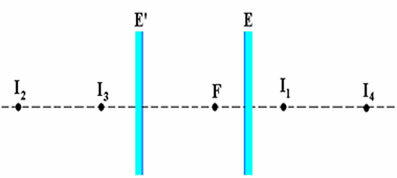The critical thinking of the Frankfurt School (EF) philosophers has in common the direction of their criticisms to the political and economic order of the “managed world”. This order is in force along the lines of a technological apparatus that, in a way, affects society its standardized, homogeneous conditioning and, above all, without the perspective of undertaking the life of each individual of autonomously.
With this, each thinker in this line contributed to the promotion of critical theory (TC). From the outstanding works restricted to each author, we have: Max Horkheimer focused his thought on “Eclipse of Reason”, where a collection of texts perpetuates the his theoretical baggage, although the philosopher always found himself producing articles and other texts that identified him as an arduous intellectual engaged in academic. Teodor Wiesengründ Adorno, who, although he entered the CT after his exile, undertook to expose his thoughts critical in the same perspective as the others, but some divergences or dissonance. In his work "
Negative Dialectics" (DN), Adorno faces a whole historical-philosophical tradition, with the deconstruction of the concept of “dialectic” focusing on it.It is, therefore, his proposal of "living philosophy", the denial of dialectics, which corroborates the non systematization, that is, contrary to the Hegelian dialectic, the negative dialectic does not have its moment of synthesis. In this sense, Adorno is radically opposed to the position of reconciliation, as a conceptually comprehensive term, but which determines the precepts of the Hegelian dialectic, since such a position preserves a bourgeois vision, whose target is, for him, both in philosophy and in art. Although DN has a greater emphasis on maximum criticism, Adorno has numerous articles and texts found in collections. He also had great support in working together with Horkheimer on what resulted in “Dialectics of Enlightenment”.
Herbert Marcuse, like Adorno, started to contribute to TC after his exile in the United States. His critical foundation preserves the basis of dialectical negation, but distances himself from Adorno in what he considers, by philosophy, a ideal form of sociability, since for Adorno, barbarism is already in place, as there is no way to escape the system of order established. In this sense, Marcuse is milder, relying on the technicality of humanitarian progress, emphasizing the need to raise awareness among the working masses and make them neglectful of the current order. For him, emancipation is already given, however it does not occur because of the imprisonment of the human condition in the “realm of necessity”. This kingdom, according to Marcuse, encompasses the social situation of technical progress equivalent to the supply of the vital needs of man. Therefore, it would not be up to the apparatus of the administered world to condition society to step forward and enter the “realm of freedom”. This does not happen, properly because it does not fit with the logic of the apparatus of industrial society. Marcuse wrote, in addition to articles, his reference work "Reason and Revolution", in which he condenses much of his critical thinking. He also edited “Eros and Civilization", a philosophical interpretation of Freud, whose conceptual content illustrates the notion of progress, pointing out its rectifying or emancipatory character of social domination and, on the other hand, its perpetuation.
Walter Benjamin, also in exile in the United States, faithfully contributed to the spread of CT. Benjamim wrote numerous articles that reflect the humanitarian temporal condition, starting from his reflection on art and society. As far as his art criticism is concerned, he analyzes the drama of the 17th century, seeking in it a conception of History. Faced with social criticism, he sought in art the historical situation to express it, since his emphasis on the conception of art allows him to elaborate such an analogy. His essays are always in tune with this bias, that is, through the art of being able to speak about the concept of History.
These are the main authors of EF and their contributions to CT.
By João Francisco P. Cabral
Brazil School Collaborator
Graduated in Philosophy from the Federal University of Uberlândia - UFU
Master's student in Philosophy at the State University of Campinas - UNICAMP
Source: Brazil School - https://brasilescola.uol.com.br/filosofia/teoria-critica-seus-principais-pensadores.htm

